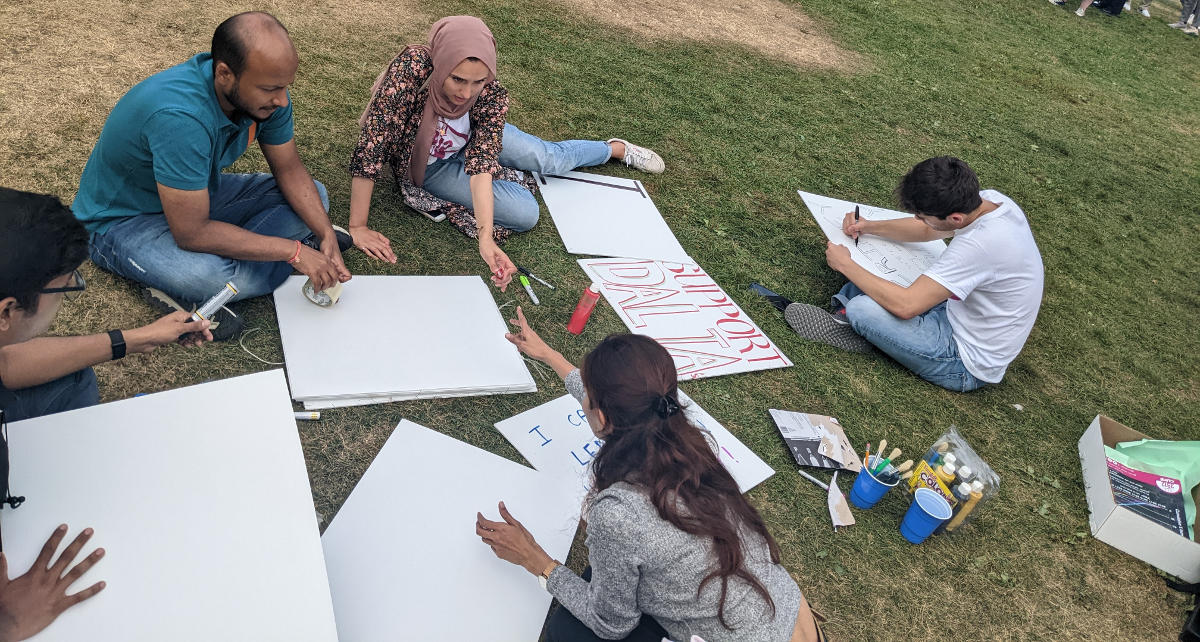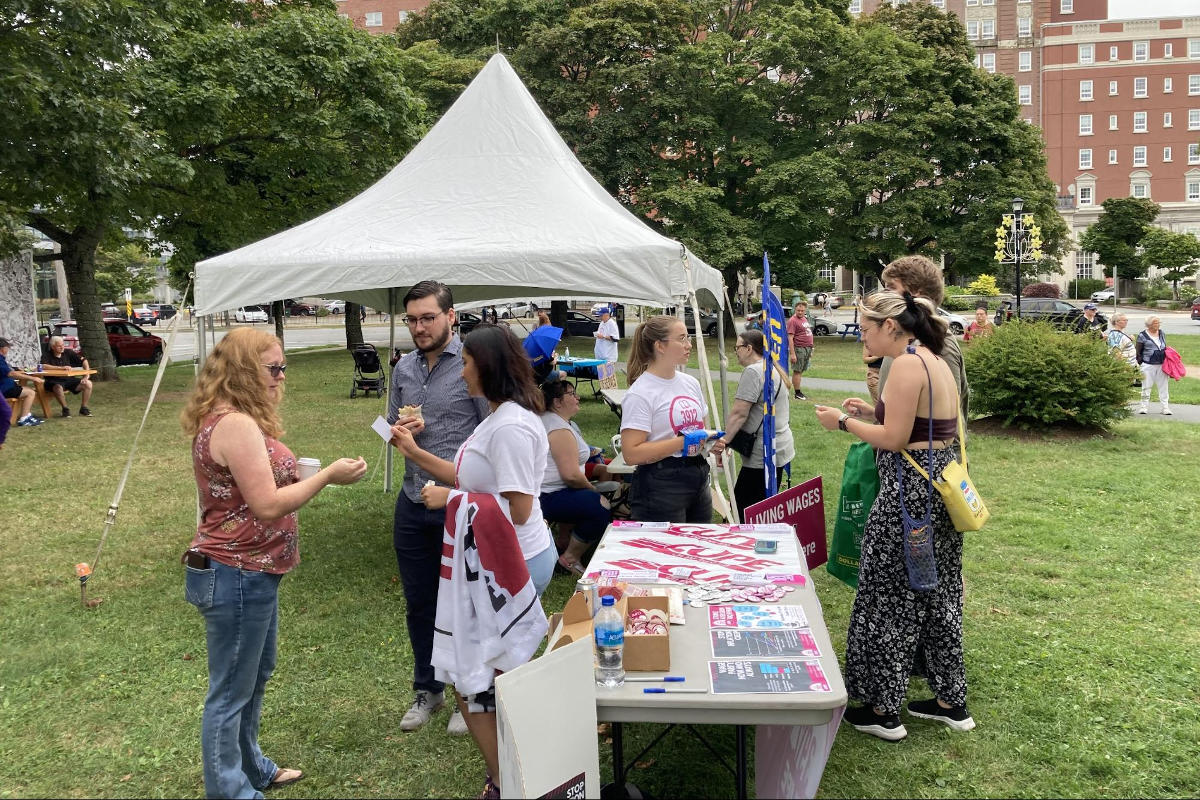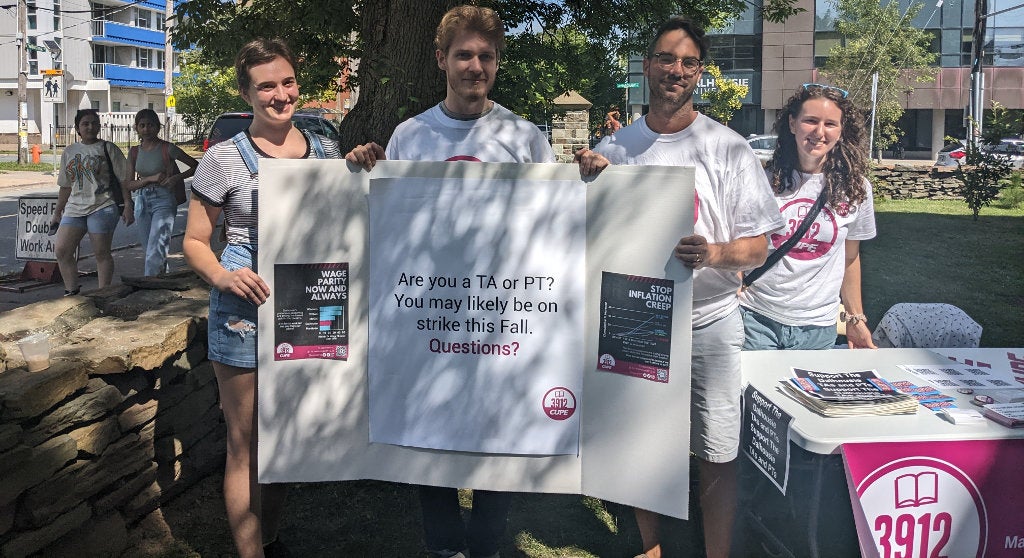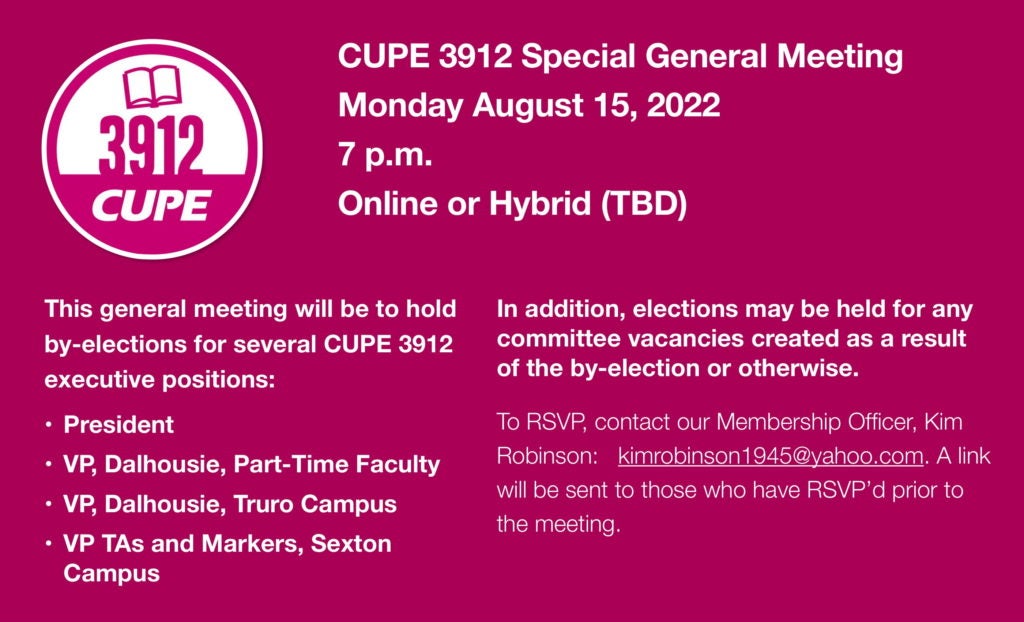All work done by CUPE 3912 members should stop for the length of the strike. If you continue to work, you will not be paid.
Bargaining Update
Our strike is effective. After more than a week of our strike, Dalhousie’s Administration has agreed to return to the bargaining table on Wednesday, November 2, 2022. For details visit our Bargaining Updates page.
Let’s keep up the pressure by picketing even harder to support our Negotiating Committee before and during their bargaining meetings.
Picketing Plan
October 31st – November 4th, 2022
Monday (Oct. 31)
- Studley Quad (Studley)
- SPECIAL EVENT: Student Walkout @ 12 PM (feel free to wear a costume)
Tuesday (Nov. 1)
- Barrington St. Greenspace (Sexton)
Wednesday (Nov. 2)
- Rebecca Cohn Auditorium (Studley)
Thursday (Nov. 3)
- Dunn/Chase Building (Studley)
Friday (Nov. 4)
- Weldon Law Building (Studley)
Anyone can join, no prior signup required. Just show up, go to the tent to receive information, buttons, and a sign, and join the picket line. If you have an active contract, sign in and sign out on the timesheets at the tent to ensure you get strike pay. While everyone is welcome at any time, we encourage people to sign-up for our strike schedule. Please sign-up here:
Sign Up for Reading Week (Reduced Hours)
For those who cannot perform strike duties in person due to living far away from Halifax or having specific accommodation needs (immunocompromised or other), please contact DalRemoteDuties@cupe3912.ca.
Other Strike-Related Information
Strike Pay
-
Our picketing schedule is Monday-Friday, but strike pay is recorded from Wednesday-Tuesday because our strike started on a Wednesday. You will only get paid for at most 20 hours of strike duties with a Wednesday-Tuesday week. Strike pay cheques become available on the following Friday. Please visit the Strike HQ in the SUB to receive your cheque (remote members will have their cheques mailed).
The hardship fund is in development; more information is coming soon.
Contact
- Most answers to questions you have can be found in the Strike FAQ and the Picketing FAQ.
- If the FAQs do not have the information you need, please email one of the VPs or drop by the Strike HQ in the SUB (2nd floor, Boardroom B) during regular working hours.
- For media, please reach out to our Communications Officer, Gábor Lukács, at communications@cupe3912.ca, or our Outreach Coordinator, David Banoub, at outreach@cupe3912.ca.
- For other matters, contact us at office@cupe3912.ca.







